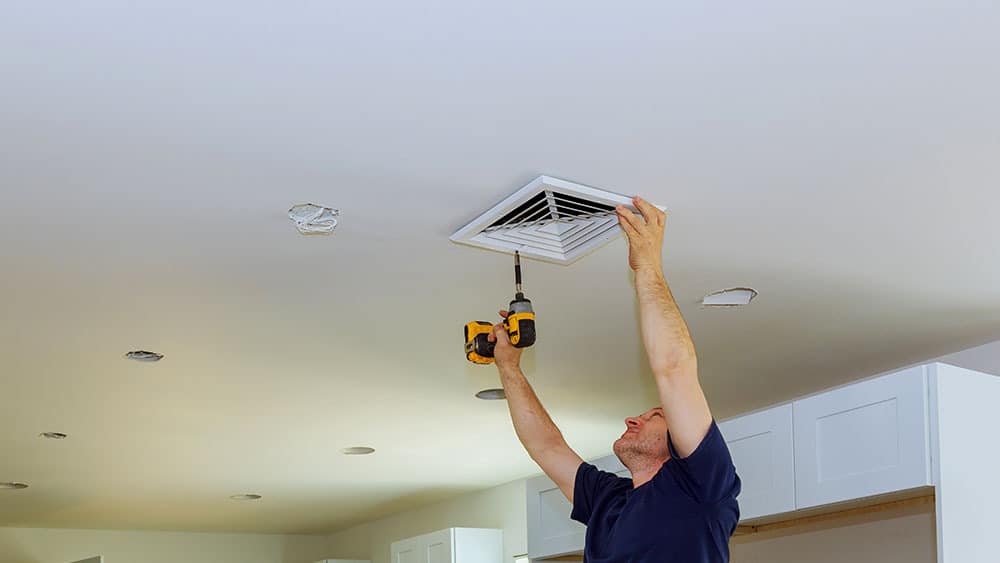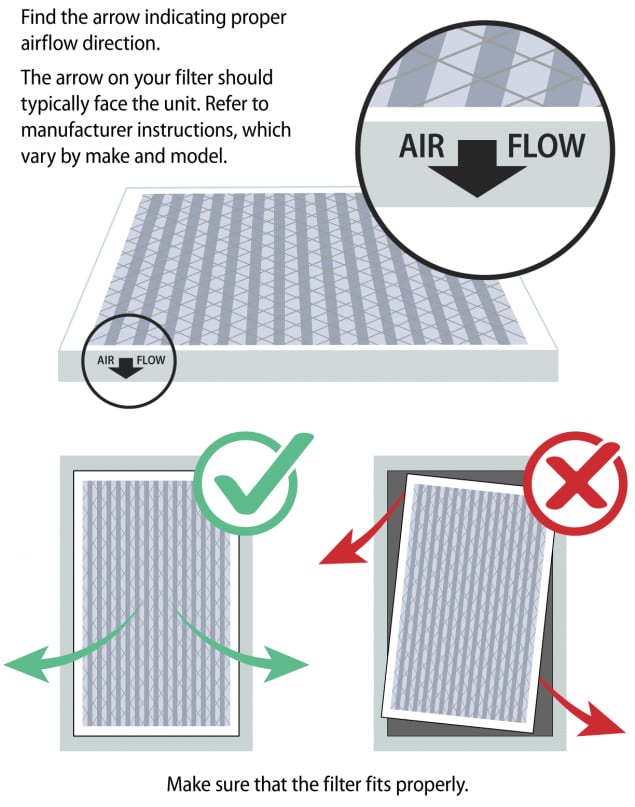The Function of Home Ventilation in Preventing Mold And Mildew and Indoor Allergens
Home air flow is an important part in keeping a healthy and balanced interior environment. It regulates moisture degrees, which can prevent the development of mold and the buildup of allergens. Many house owners neglect the importance of appropriate ventilation, usually resulting in undetected problems. Recognizing exactly how air flow systems function and their effect on air high quality can be the key to a much healthier living area. What actions can be required to enhance these systems successfully?
Understanding Home Air Flow Solutions
While many house owners might overlook the value of air flow, understanding home ventilation systems is essential for maintaining interior air quality and stopping mold and mildew growth - Home Ventilation Melbourne. These systems assist in the exchange of stagnant indoor air with fresh exterior air, efficiently reducing toxins and wetness degrees. Common kinds consist of natural air flow, which relies on wind and temperature level differences, and mechanical air flow, which uses air ducts and fans to manage airflow. Furthermore, well balanced ventilation systems incorporate both methods to enhance air high quality. Appropriately made and kept air flow systems can aid manage temperature level and moisture, guaranteeing a comfortable living environment. House owners need to take into consideration factors like home tenancy, layout, and climate when selecting a ventilation system to best suit their requirements and improve overall air high quality
The Effect of Humidity on Mold Development
Moisture plays a crucial duty in mold and mildew growth, making it a vital element for home owners to check. Mold and mildew thrives in atmospheres where humidity degrees go beyond 60%, as these problems give the dampness necessary for spores to proliferate and germinate. High humidity can result from different sources, including inadequate air flow, water leaks, and cooking or bathing activities. When humidity degrees continue to be elevated, mold can create quickly on organic materials such as timber, fabric, and drywall. Property owners must use dehumidifiers and assure correct air flow in locations prone to moisture, such as cellars and washrooms. Keeping indoor humidity in between 30% and 50% can greatly minimize the danger of mold and mildew development, contributing to a healthier living atmosphere.
Identifying Common Indoor Allergens
Indoor settings can nurture a variety of allergens that influence wellness and comfort. Typical interior irritants include allergen, pet dog dander, mold spores, and plant pollen. Dust termites thrive in bed linen, carpets, and upholstery, feeding on organic product and adding to respiratory problems. Pet dander, made up of tiny flakes from skin and hair, can set off sensitive reactions in sensitive people. Mold and mildew spores, usually present in wet areas, can impact and multiply air quality. Additionally, plant pollen can penetrate homes through open home windows or on garments. Recognizing these allergens is necessary for keeping a healthy indoor setting. Awareness of their existence allows homeowners to take proactive actions to reduce exposure and boost overall indoor air high quality.
Benefits of Proper Air Flow
Appropriate ventilation is crucial for preserving a healthy and balanced interior atmosphere, as it aids to manage air top quality and decrease the build-up of toxins. Ample air movement facilitates the exchange of indoor and outdoor air, thereby weakening unsafe substances such as unstable natural substances, irritants, and dirt. This process not only enhances comfort yet likewise adds to the total well-being of residents by reducing breathing concerns (Home Ventilation Melbourne). Proper ventilation efficiently regulates humidity degrees, reducing the likelihood of mold growth and cultivating a drier atmosphere helpful to health. Furthermore, it can boost energy performance by making sure that cooling and heating systems operate better, causing reduced energy costs. Generally, correct ventilation is an important element in advertising navigate to this site a secure and healthy living space

Tips for Improving Home Ventilation
Although several property owners might overlook it, boosting home air flow is crucial for boosting air high quality and stopping mold development. One efficient method is to routinely open windows to promote cross-ventilation, enabling fresh air to flow. Installing exhaust followers in bathrooms and kitchens can efficiently remove moisture-laden air, minimizing moisture levels. House owners must additionally consider using air purifiers with HEPA filters to capture contaminants and irritants. Frequently keeping heating and cooling systems, consisting of changing filters, guarantees peak airflow and effectiveness. Sealing leakages around doors and windows can stop outside air from getting in, which assists preserve a regular interior setting. Integrating houseplants can normally improve air high quality while including visual worth to the home.
Regularly Asked Inquiries
Exactly how Often Should I Clean My Home Ventilation System?
Identifying how frequently to cleanse a home ventilation system depends on numerous elements, consisting of usage and environmental problems. Home Ventilation Melbourne. Generally, specialists advise a detailed cleansing every three to 5 years to preserve ideal air movement and efficiency
Can Plant Kingdom Assist Reduce Indoor Allergens?
Research study shows that specific indoor plants might help in reducing irritants by improving air quality and boosting humidity. Nonetheless, their efficiency varies, and preserving a clean setting stays vital for managing interior allergens effectively.
What Types of Air Filters Are Ideal for Mold And Mildew Prevention?

Are There Details Ventilation Needs for Cellars?

How Do I Know if My Air Flow Is Working Successfully?
To determine reliable ventilation, one should keep track of moisture levels, examine airflow with vents, and observe indicators of condensation or stagnant air. Normal assessments can suggest whether the system properly distributes and exchanges interior air.
Understanding exactly how air flow systems function and their Check Out Your URL effect on air top quality might be the key to a healthier living area. While several homeowners may ignore the importance of ventilation, recognizing home ventilation systems is necessary for maintaining indoor air high quality and preventing mold and mildew development. Usual types consist of natural air flow, which depends on wind and temperature level differences, and mechanical ventilation, which makes use of air ducts and followers to regulate airflow. Proper ventilation his comment is here is essential for preserving a healthy and balanced interior setting, as it helps to regulate air top quality and reduce the accumulation of toxins. Lots of property owners might overlook it, boosting home air flow is vital for boosting air quality and preventing mold development.